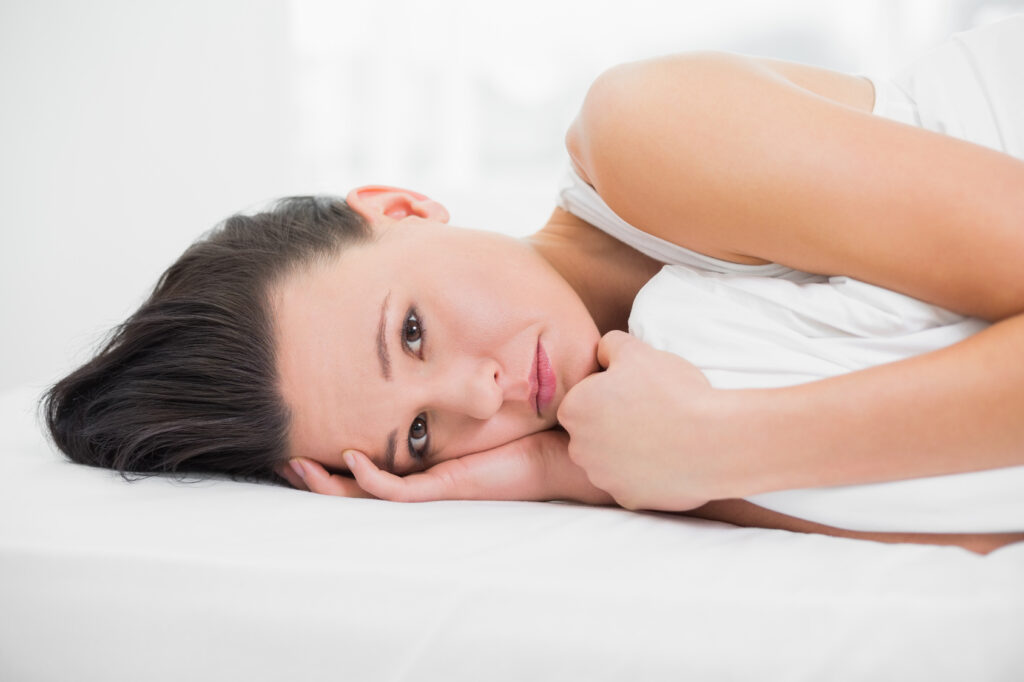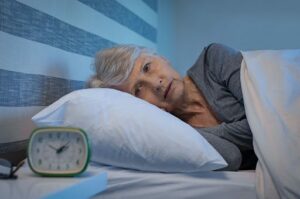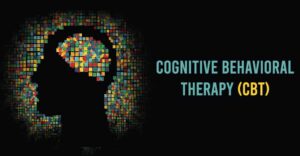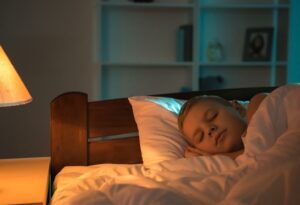Do you have trouble sleeping? Do you feel like your mind is constantly racing, and you can’t turn off your thoughts? If so, you may be suffering from OCD. Obsessive-compulsive disorder can cause a lot of problems in someone’s life, including sleep deprivation. In this blog post, we will discuss the link between sleep and OCD, and what you need to know to get the best sleep possible.
Contents
- 1 What Is Sleep OCD?
- 2 What Are The Symptoms?
- 3 What Is The Link Between Sleep And OCD?
- 4 What Are The Causes?
- 5 What Are The Consequences?
- 6 How Can Therapies Help?
- 7 How Can Self-Care Strategies Help?
- 7.1 Create a relaxing bedtime routine
- 7.2 Limit caffeine and alcohol intake
- 7.3 Avoid working or using electronic devices in bed
- 7.4 Sleep in a dark, quiet, and cool room
- 7.5
- 7.6 Sleep on a comfortable mattress and pillow
- 7.7 Limit naps during the day
- 7.8 Keep your day busy
- 7.9 Try not to stress about sleep
- 8 Conclusion
What Is Sleep OCD? 
Sleep OCD is a type of OCD where people are obsessed with sleep. They may have intrusive thoughts about sleep or be afraid of not getting enough sleep. People with sleep OCD may also have difficulty falling asleep or staying asleep.
In other words, sleep OCD is a type of OCD that is focused on sleep. People with sleep OCD may have intrusive thoughts about sleep or be afraid of not getting enough sleep.
What Are The Symptoms?
You must be aware of some of the warning signals of sleep OCD. Some of them include:
- intrusive and unwanted thoughts about sleep
- difficulty falling asleep or staying asleep due to worries about sleep
- spending excessive time in bed trying to sleep
- engaging in repetitive and ritualistic behaviors before sleep in an attempt to reduce anxiety
- experiencing distress or functional impairment due to sleep problems
- feeling that sleep is out of one’s control
- experiencing significant levels of anxiety about sleep regularly
These are some of the common symptoms of sleep OCD.
What Is The Link Between Sleep And OCD? 
There is a strong link between sleep and OCD. Studies have shown that people with OCD are more likely to have sleep problems than those without OCD.
People with OCD often have difficulty falling asleep because they are worried about their obsessions and compulsions. They may also have difficulty staying asleep because they wake up from their intrusive thoughts or they may have to perform their compulsions several times during the night.
People with OCD may also have sleep paralysis or sleepwalking because of their sleep problems. Sleep paralysis is a condition where a person is unable to move or speak for a short period after waking up or falling asleep. Sleepwalking is a condition where a person gets up and walks around during sleep. So, we can see that OCD may result in a variety of sleep issues.
Moreover, sleep issues can also result in OCD. One theory suggests that sleep deprivation can lead to an increase in anxiety and OCD symptoms. Anxiety and depression can worsen OCD symptoms. Another theory suggests that sleep problems can trigger or worsen OCD because sleep deprivation can lead to a decrease in serotonin levels. Serotonin is a neurotransmitter that is thought to play a role in OCD.
Sleep problems can also affect the way people with OCD respond to treatment. People with sleep problems are less likely to respond well to behavioral therapy and medication. Sleep problems can also make it more difficult for people with OCD to stick to their treatment plan. Therefore, sleep problems can lead to OCD.
What Are The Causes?
There are a few key risk factors for developing sleep OCD that you should be aware of:
Experiencing high levels of stress 
Sleep OCD is often caused by high levels of stress. This can be due to several different things, such as work stress, family stress, or even just the general stresses of daily life.
This can lead to several different physical symptoms, such as increased heart rate, difficulty breathing, and tense muscles.
Let’s take an example. imagine you’re going through a difficult breakup. Every time you try to sleep, all you can think about are the arguments you had and how your life is now changed. You may even start to worry that you’ll never sleep again. This can lead to what’s known as sleep OCD.
Having other mental health disorders
Sleep OCD can be caused by other mental health disorders such as anxiety or depression. This is because sleep OCD can be a way to cope with the other disorder. For example, if someone has anxiety, they may have sleep OCD to try to control their worry and sleep better. Depression can also lead to sleep OCD because people who are depressed may sleep more or have difficulty sleeping.
Taking certain medications that can trigger OCD symptoms
There are a few different medications that can trigger sleep OCD symptoms. One of the most common is Ambien. Ambien is a sleep medication that is used to help people sleep. However, it can also cause sleep OCD symptoms in some people.
Another common medication that can trigger sleep OCD is Adderall. Adderall is a medication that is used to treat ADHD. However, it can also cause sleep OCD in some people. Lastly, another common medication that can trigger sleep OCD is Zoloft. Zoloft is an antidepressant that can also cause sleep OCD in some people.
Having a traumatic or stressful life event
There are a few different ways that sleep OCD can be triggered. One of the most common is by having a traumatic or stressful life event. This could be something like a car accident, a natural disaster, or even just a major life change like getting married or starting a new job.
When something like this happens, it can disrupt our sleep patterns and cause us to start obsessing oversleep. We may start worrying that we’ll never be able to sleep again or that we’ll sleep for days and not be able to wake up.
Continuous thoughts about something
Sleep OCD can be caused by a variety of things. It could be something as simple as worrying about not being able to fall asleep or it could be something more serious, like thinking about a loved one who has passed away. Whatever the cause, sleep OCD can make it very difficult to get a good night’s sleep.
Ruminating about the day’s events before sleep
Sleep OCD can be caused by a variety of things, but one of the most common is ruminating about the day’s events before sleep. This can lead to a spiral of intrusive thoughts and anxiety that make it difficult to fall asleep. For example, you might start worrying about something that happened at work or school and then find yourself obsessing over it for hours. This can make it hard to relax and sleep, which can in turn exacerbate OCD.
What Are The Consequences?
There exist a wide range of harsh consequences of sleep OCD. Some of them are:
Sleep Deprivation
Sleep OCD results in sleep deprivation for several reasons. One reason is that sleep OCD can cause anxiety and stress, which can lead to difficulty falling asleep. Additionally, sleep OCD can cause intrusive and unwanted thoughts, which can also make it difficult to fall asleep.
Finally, sleep OCD can result in sleep paralysis, which can cause a person to wake up feeling frightened or panicked. All of these factors can lead to sleep deprivation, which can then exacerbate the symptoms of sleep OCD.
Fatigue 
Sleep OCD results in fatigue for several reasons. First, sleep OCD can lead to difficulty falling asleep or staying asleep. This can be due to intrusive thoughts or worries about sleep itself. Secondly, sleep OCD can cause sleep disruptions such as frequent awakenings or difficulty returning to sleep. This can lead to sleep deprivation, which can cause fatigue.
Finally, sleep OCD can interfere with the quality of sleep, leading to less restful sleep and more fatigue.
Anxiety
Many people with sleep OCD report feeling anxious about their sleep. They may worry about not getting enough sleep, or they may be afraid of sleeping in certain positions. Some people with sleep OCD may even have nightmares about their sleep habits. All of these things can result in anxiety and make it difficult to get a good night’s sleep.
For example, if you’re worried about not getting enough sleep, you may find yourself tossing and turning all night long. Or, if you’re afraid of sleeping in certain positions, you may find yourself waking up often throughout the night to make sure you’re not in a position that could harm you.
Depression
Sleep OCD can result in depression for several reasons. One reason is that sleep OCD can cause a person to become isolated and withdrawn. It can also cause a person to miss out on important aspects of their life, such as work, school, or social activities. Sleep OCD can also cause a person to miss out on sleep, which can lead to fatigue and other health problems.
Finally, sleep OCD can cause a person to become fixated on their sleep habits, which can make it difficult to relax and sleep.
Memory Problems
Sleep OCD can result in memory problems for a variety of reasons. One reason is that sleep deprivation can cause forgetfulness and difficulty concentrating. Another reason is that sleep disorders can cause problems with sleep quality, which can lead to difficulty remembering things.
Additionally, sleep OCD can cause people to obsess over their sleep habits, which can lead to difficulty focusing on other tasks and remembering information. Let’s take an example, if you are sleep deprived, you may have difficulty remembering what you need to do the next day.
Weakened Immune System
Sleep OCD can result in a weakened immune system for several reasons. First, sleep deprivation can take a toll on the body and make it more susceptible to illness. Second, sleep OCD can lead to anxiety and stress, which can also weaken the immune system. Finally, sleep OCD can cause people to obsess over their sleep habits and routines, which can lead to unhealthy behaviors that can compromise the immune system.
Increased Risk Of Accidents And Injuries
Sleep OCD can result in an increased risk of accidents and injuries for several reasons. First, sleep deprivation can cause people to feel drowsy and less alert, which can make it more difficult to focus on tasks and pay attention to their surroundings. This can lead to accidents such as tripping and falling, or car accidents.
Secondly, sleep deprivation can also cause people to have more difficulty controlling their emotions and impulses, which can lead to fights or other violent behaviors. Finally, sleep deprivation can cause people to have difficulty thinking clearly and making decisions, which can lead to errors in judgment that can result in accidents or injuries.
Relationship Difficulties
Sleep OCD can result in relationship difficulties for a few reasons. First, someone with sleep OCD may have difficulty falling asleep at night due to their intrusive thoughts and rituals. This can lead to sleep deprivation, which can make the person irritable and difficult to be around.
Additionally, sleep OCD can cause the person to be preoccupied with their sleep habits and rituals, which can take away from quality time with their partner.
For example, if the wife is suffering from OCD, her husband may be suffering from a hard time as well. He may not fall asleep because he obsesses over the tiny details of his sleep habits. He has to make sure the fan is on just the right setting, that he’s not touching any part of the bed, and that the room is pitch black. This takes him hours to do every night, and often he doesn’t fall asleep until early morning. This sleep deprivation makes him short-tempered and difficult to be around, which causes tension in his marriage.
How Can Therapies Help?
There are various types of therapies that may help manage and overcome sleep OCD and some of them are:
Cognitive-Behavioral Therapy 
CBT is an effective treatment for sleep OCD. It helps people manage and recover from sleep OCD by helping them to understand and change the thoughts and behaviors that contribute to their sleep problems.
The therapist will work with the person with sleep OCD to identify and challenge the negative thoughts and beliefs that contribute to their sleep problems. The therapist will also help the person to develop and practice new, healthier sleep habits.
Exposure And Response Prevention
ERP is a type of cognitive-behavioral therapy that is effective in treating sleep OCD. It involves exposing oneself to the sleep-related thoughts, images, or impulses that trigger anxiety and distress (the exposure component) and then learning how to refrain from engaging in the compulsive behaviors or mental rituals that are meant to reduce anxiety (the response prevention component).
Your therapist will work with you to develop a graduated hierarchy of sleep-related fears, starting with the least anxiety-provoking exposures and moving up to the most anxiety-provoking exposures. The exposure component of ERP can be done in imagination (i.e., mentally imagining the sleep-related fear), in real life (i.e., actually going to sleep in the presence of the feared sleep-related object or situation), or via some combination of both.
Sleep Restriction Therapy
Sleep restriction therapy is a type of sleep management technique that can be used to help people with sleep OCD recover from their disorder. The goal of sleep restriction therapy is to restrict the amount of time that a person spends in bed to the amount of time that they need to sleep. This can help to train the body to sleep for shorter periods, which can help to reduce the symptoms of sleep OCD.
Your therapist will likely start you out with a sleep restriction schedule that allows you to sleep for only six or seven hours each night. As you begin to improve, the amount of time you’re allowed to sleep will gradually increase. Sleep restriction therapy usually lasts for four to six weeks. During this time, it’s important to stick to your sleep schedule as closely as possible and to avoid napping during the day.
Acupuncture
Acupuncture is an ancient form of Chinese medicine that has been used for centuries to treat a variety of conditions. It is based on the belief that there are energy pathways or meridians in the body that can become blocked, leading to illness.
Acupuncture is said to unblock these meridians and restore balance and health. Acupuncture is usually done with thin needles that are inserted into the skin at specific points on the body. The number of needles and the length of time they are left in place will depend on the individual.
There is some evidence that acupuncture can help with sleep disorders, including sleep OCD. First, acupuncture can help to reduce stress and anxiety. This is important because sleep OCD can be triggered by anxiety and stress. It can also help to improve sleep quality by regulating the body’s sleep-wake cycle. Finally, acupuncture can help to reduce pain, which can also be a trigger for sleep OCD.
Aromatherapy
Aromatherapy can be a helpful tool in managing and recovering from sleep OCD. The calming effects of essential oils can help to ease anxiety and promote relaxation.
Your therapist will work with you to determine which essential oils are best for you and how to use them safely. This therapy involves using natural oils to promote relaxation and sleep. The therapist will work with you to determine the best essential oils for your needs and how to use them safely. The process includes inhaling the oil or absorbing it through the skin. This helps to promote sleep and ease anxiety.
Art Therapy
Art therapy can help people with sleep OCD in several ways. It can provide a creative outlet for the anxiety and obsessions that characterize the disorder and can help people to express their thoughts and feelings about their sleep problems in a safe and non-judgmental environment.
In addition, art therapy can provide a sense of community and support for people with sleep OCD, who often feel isolated and alone in their struggles. Finally, art therapy can help people to find hope and meaning in their lives, despite their sleep OCD.
Your therapist will likely use a variety of techniques and approaches in art therapy, depending on your needs and preferences such as
- Drawing or painting about sleep-related anxiety or obsessions
- Creating a “dreamscape” collage, to visually represent the impact of sleep OCD on daily life
- Writing poems or stories about sleep problems
- using clay or other materials to sculpt a representation of sleep OCD
- Engaging in role-playing or drama to explore sleep-related issues
How Can Self-Care Strategies Help?
There are a few key things to keep in mind when it comes to sleep and OCD. Several self-care strategies may help overcome sleep OCD. Some of them are:
Create a relaxing bedtime routine
One way that may help is by creating a relaxing bedtime routine. This can involve winding down for a few minutes before sleep, disconnecting from electronics screens, reading a book, or doing some light stretching.
The goal is to give yourself some time to relax and clear your mind before sleep. This routine can help to ease the anxiety that can come with sleep OCD and make it easier to fall asleep.
Limit caffeine and alcohol intake
Caffeine and alcohol are two substances that can have a major impact on sleep. Caffeine is a stimulant, so it can make it difficult to fall asleep and stay asleep. Alcohol, on the other hand, can make it easier to fall asleep, but it can also lead to sleep disruptions later in the night. Therefore, limiting the intake of both substances may help manage and overcome sleep OCD.
Avoid working or using electronic devices in bed
One of the most important things is to avoid working or using electronic devices in bed. For example, if you are working on a project for work, try to finish it up before you go to bed so that you’re not thinking about it when you’re trying to sleep. If you like to use your phone or tablet in bed, try reading a book instead so that you’re not as focused on the screens.
Sleep in a dark, quiet, and cool room
Sleeping in a dark, quiet, and cool room may help manage sleep OCD by reducing the amount of stimulation the brain receives. This can help to reduce the overall level of anxiety and allow the individual to focus on sleep. You can do this by making sure to sleep in a comfortable environment that is dark, quiet, and cool.
Sleep on a comfortable mattress and pillow
A comfortable mattress and pillow can play an important role in managing and overcoming sleep OCD. One reason is that sleep OCD can be caused by anxiety and stress. A comfortable mattress and pillow can help reduce anxiety and stress levels, which in turn can help reduce sleep OCD symptoms.
Another reason why a comfortable mattress and pillow can help manage sleep OCD is that they can improve sleep quality. By improving sleep quality, sleep OCD symptoms may also be reduced.
Limit naps during the day
If you have sleep OCD, you may find that limiting your naps during the day helps you manage and overcome your sleep disorder. When you sleep during the day, you may find it difficult to fall asleep at night. This can lead to sleep deprivation, which can worsen your sleep OCD symptoms. So, ensure that you get enough sleep at night by avoiding naps during the day.
Keep your day busy
One way to keep sleep OCD at bay is to stay busy during the day. This can be difficult for some people, but it’s important to keep your mind occupied. Keeping your day busy can help you sleep better at night and prevent the intrusive thoughts that can lead to sleep OCD. There are a few ways to stay busy during the day:
- Take on a new hobby: A new hobby can help take your mind off of sleep and sleep OCD. It can also be a great way to relax and de-stress.
- Exercise: Exercise is a great way to stay busy and keep your body healthy. It can also help you sleep better at night.
- Spend time with friends and family: Spending time with loved ones can help take your mind off of sleep and sleep OCD.
- Get involved in your community: There are many ways to get involved in your community. This can help you meet new people and stay busy.
Try not to stress about sleep
One of the most important things you can do to manage sleep OCD is to try not to stress about sleep. This may seem counterintuitive, but sleep is a natural process that happens without our conscious control. When we try to control our sleep, it can make sleep harder to come by.
There are a few things you can do to try not to stress about sleep:
- Permit yourself to sleep. This may seem obvious, but many people with sleep OCD feel like they have to sleep a certain number of hours or they will be “failing.” If you can permit yourself to sleep whatever amount you need, it can take a lot of the pressure off.
- Don’t fixate on sleep. This can be easier said than done, but it’s important to try not to focus all your attention on sleep. If you’re fixated on sleep, it can become harder to relax and fall asleep.
- Accept that sleep may not be perfect. We all have nights where we don’t sleep as well as we’d like. If you can accept that sleep isn’t always going to be perfect, it can take some of the pressure off.
Conclusion
People with sleep OCD may have difficulty falling asleep or staying asleep due to their anxiety. Treatment for sleep OCD often includes exposure and response prevention therapy, which is a type of cognitive behavioral therapy.
Never wait for your symptoms to go away on their own. If you think you may have sleep OCD, please reach out to a mental health professional for help. As this can take a toll on your life in many ways if not treated. It’s your life that is at stake, don’t sleep on it! Reach out for help.
Professional Guidance is the first step to moving toward your healing journey. You can try reaching Therapy Mantra to seek expert help in the comfort of your own home. Our therapists will help you get a solution to manage and overcome your problem. You can book your online therapy and talk directly to your assigned mentor. You may also download our free OCD treatment app on Android or iOS.








